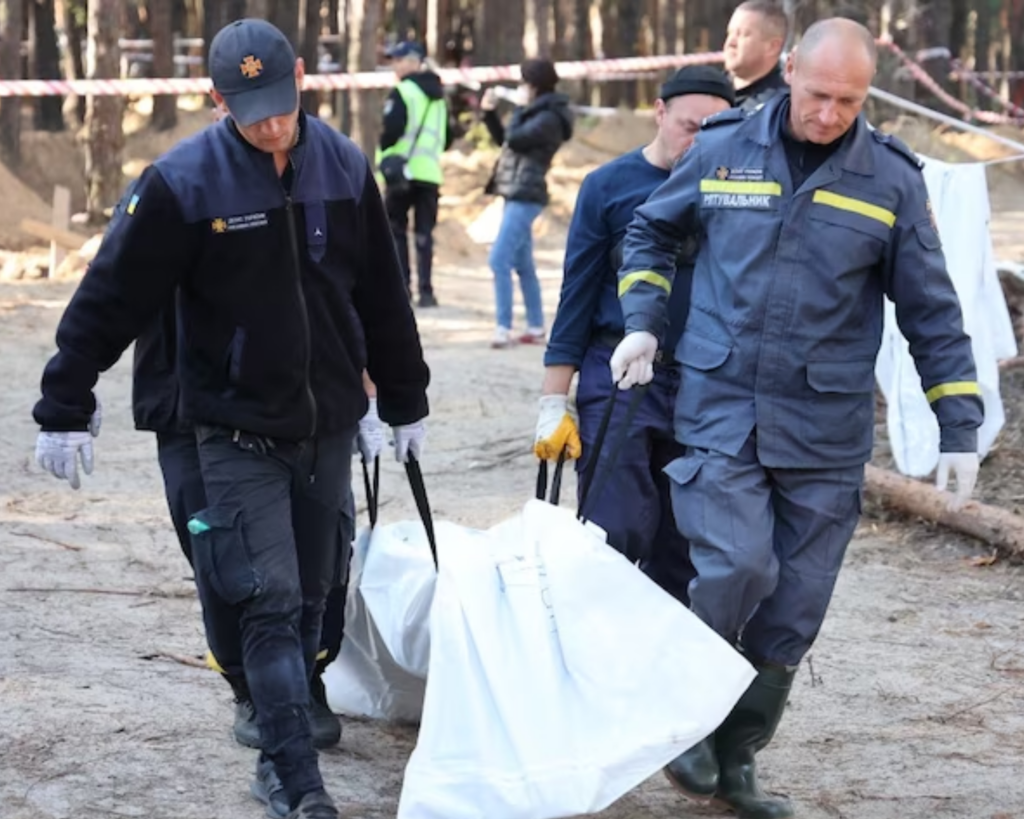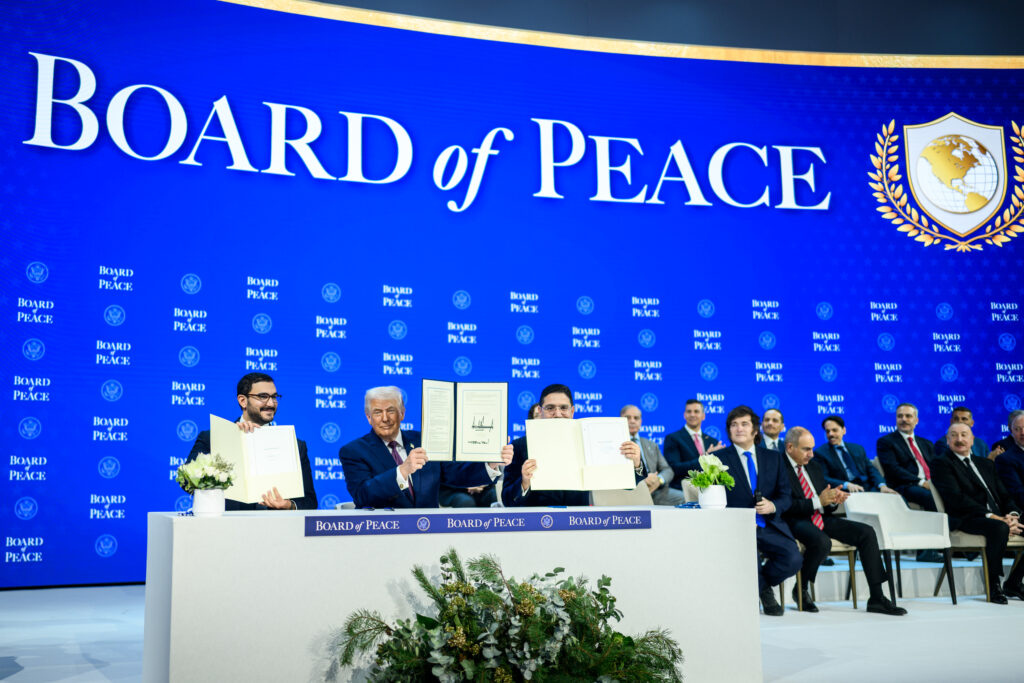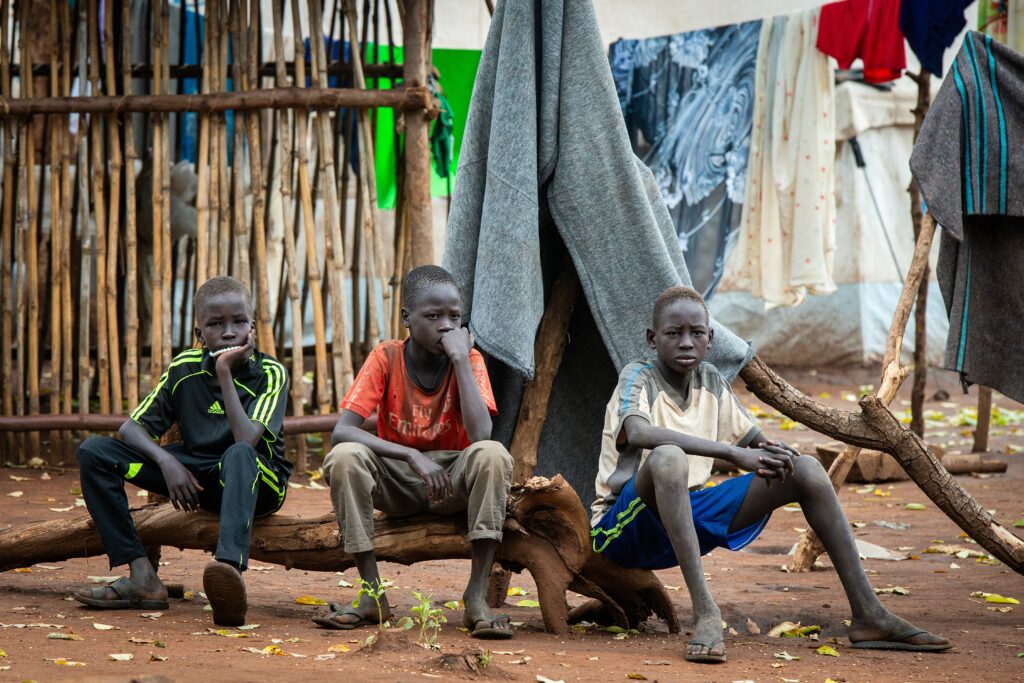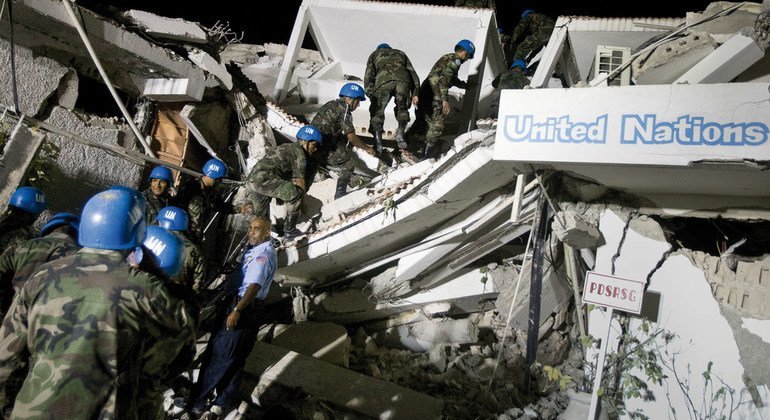A Conversation with Angela Me, Chief of Research for the UN Office for Drugs and Crime
At the helm of research and trend analysis for the UN Office on Drugs and Crime, Angela Me, PhD, is a tour de force in the global fight against trafficking. Dr. Me leads research efforts that yield seminal works like the World Drug Report, the Global Report on Trafficking in Persons, and the Global Study on Homicide. A 30-year veteran of the UN, this gregarious Italian is bad news for the bad side.
Arguing that the real value of the UN is its peerless access to the world’s largest body of data, she notes, “Everybody doing research has a different consistency. I want to make sure that what we do on drugs is consistent. How are we answering really important questions and transmitting those findings so governments and people can take action?”
We recently spoke with Dr. Me. Here are a few insights about how she and her team are using data to save the world.
“How are we answering really important questions and transmitting those findings so governments and people can take action?”
BWC: First of all, you do such important work, but it’s also the often hidden work of research. Do you feel like you’re on the front lines?
Me: Fact is, a lot of the work of the UN is the back end stuff that nobody knows about. So I’ve come to think of myself as the one in the kitchen preparing the meal. There are times you go to a restaurant and want to visit the kitchen, but you’re really there for the substance. Me and my team are the kitchen crew making that happen.
I’ll give you an example. I recently attended a film screening about femicide – the murder of women specifically because they’re women. At one point, data appeared on the screen noting that 2,500 women were killed in Turkey in the last decade, and that the UN estimated that there were about 40,000 women killed by family members each year. We produced that data! The next day, I read a piece on femicide in The New York Times, and again came across our data. I could’ve cried. Our work did something that helped mobilize action.
BWC: That backend work is actually incredibly vast. When you look at all the tentacles of the problems you’re trying to unpack and provide insight on, where do you start? What’s your priority?
Me: We’re laser focused on ensuring that countries develop the proper laws and infrastructure to address and understand the magnitude of the phenomenon – from drugs to trafficking. So as the UN, we support institutional responses because that’s what we’re uniquely positioned to facilitate.
“As the UN, we support institutional responses because that’s what we’re uniquely positioned to facilitate.”
BWC: Give me an example. What does an institutional response look like in, say, the U.S.?
Me: In the U.S., for example, trafficking most frequently takes the form of forced labor in the agriculture sector. While trafficking persons for sexual exploitation is also common, labor is the lion’s share. So what we want to do is support law enforcement in aggregating data – not just in the U.S. but the countries from which this labor is unlawfully sourced – to protect victims. Because let’s be honest, too often victims of trafficking wind up being the ones treated as criminals. This is why it’s difficult for them to come forward because they feel that they’re part of a criminal activity.
So this is actually a really key role the UN can play – to distinguish between victims and perpetrators in the human trafficking and illicit drugs industries. That starts with education, data and then meaningful, evidence-based best practices.
BWC: You just mentioned industry, which is a really fascinating part of this conversation. Because what we’re talking about is, in fact, sophisticated economies built around exploitation, yes, as well as supply and demand, organizational structures, etc.
Me: Organized crime is so much more than the cinematic portrayal of various cartels that draw a clear line between the good and the bad. Organized crime looks much more like neighbors who occupy both legal and illegal realms. That makes regulation or eradication especially challenging. We’re talking about people and organizations operating legitimately within the legal economy, including financial and banking systems. So the hardest part of organized crime is when we don’t see stereotypical violence because the organization is so well established that violence is unnecessary.
“The hardest part of organized crime is when we don’t see stereotypical violence because the organization is so well established that violence is unnecessary.”
BWC: So if these economies become fairly mainstreamed, as you describe, dismantling them must be pretty disruptive to the supply chains and jobs they support – which, by the way, are often vitally important in low income communities. How do you fill that void?
Me: Again, that’s where the UN can play a really important role – partnering with local law enforcement to take a holistic view of the full community and places where development investments can make sure that the formerly incarcerated and individuals engaged in illicit activities have access to opportunities so they don’t have to resort to problematic behavior. Because to your point, we can’t just stop the spigot to end the problem. If we don’t address the root causes, somebody will just replace the individual you’ve worked to take off the streets.
I think your question also raises the important role of young people in breaking cycles in communities historically marginalized or made vulnerable by inequity and power. How can we bring adolescents into new stories of their future? Why, frankly, is prevention not the biggest campaign?
“[There is an] important role of young people in breaking cycles in communities historically marginalized or made vulnerable by inequity and power. How can we bring adolescents into new stories of their future?”
BWC: I’m hoping you have an answer to that.
Me: This is where research matters – evidence-based interventions that come from studying the issues rather than just punishing them. Just think about how we treat diabetes. We don’t shame sugar, we lean on medical professionals and scientific knowledge to address disease. The same should be true for drugs and crime.
BWC: You’re reminding me of a study I recently read on the difference in the criminal justice system in Nigeria and the U.S. In Nigeria, when a young person transgresses, the community actually brings them back in – often literally and publicly. In the U.S., one of the first lessons we teach our children is “time out.” Misbehavior here comes with the consequence of a kind of exile from the embrace of community. Of note to this conversation, do you think the stigmatizing result of that approach has had the effect of pushing illicit activities underground?
Me: There’s a false perception, I think, that “time out” for children or prison is a deterrent. That people learn and choose not to do it again. But there’s actually not a lot of research to back up that assertion. That’s a question at the heart of our research; how do we rehabilitate? Not necessarily whether crime is overt or underground, but whether and how those responsible or victimized are provided ways to come back into the community.
“That’s a question at the heart of our research; how do we rehabilitate? Not necessarily whether crime is overt or underground, but whether and how those responsible or victimized are provided ways to come back into the community.”
BWC: It’s interesting to hear you say there’s not a lot of research. I feel like we’re swimming in data these days.
Me: Yes, but not necessarily good data. Nor do we always know who owns that good data. A lot of the best data is private. We’re also relying more and more on machine learning to compile new bodies of data. You’re right that we have technology today that we didn’t have 20 years ago, and so the power that we have with this data is bigger. Where it gets tricky is the ability to safeguard it while appropriately harvesting what can be used to improve the world.
BWC: It sounds like you and your team are taking on some of the biggest challenges that cross national borders. What have you not delved into yet that you’d like to get your hands around?
Cybercrime. What’s interesting is that cybercrime is really changing the criminal environment, but the question is if cybercrime is changing the nature of crime. That’s a big question that’s growing bigger by the day.




